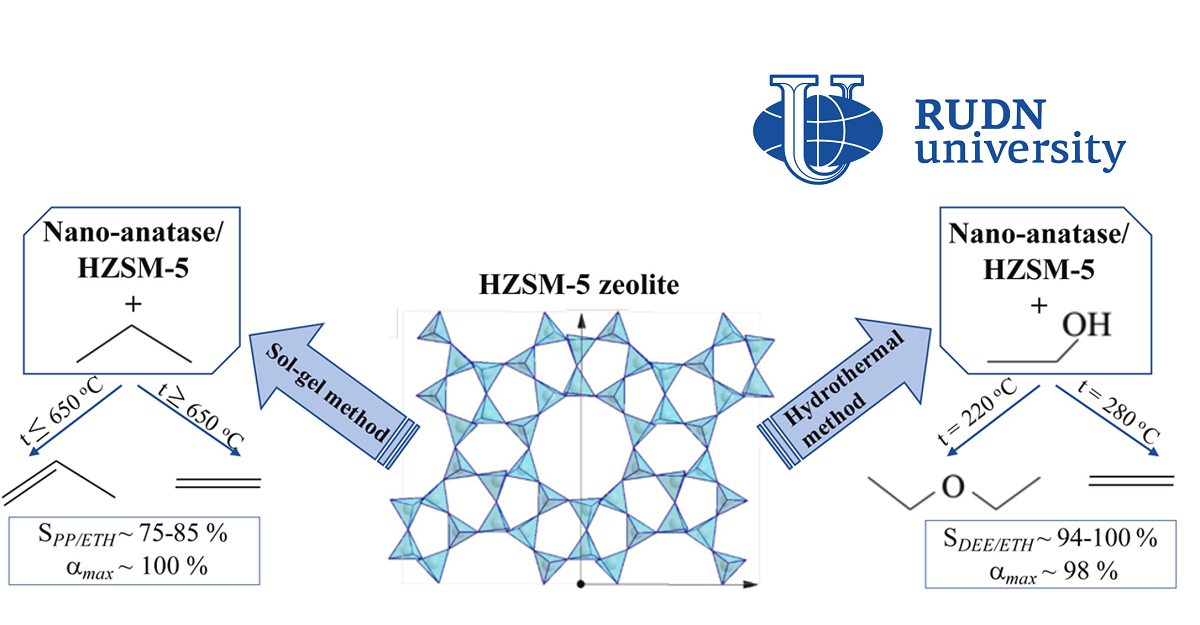RUDN chemists have created catalysts for cheap and efficient synthesis of propylene and ethylene
Propylene is
“We
investigated how the structure and texture features of HZSM-5 zeolites and their composites with anatase mineral nanoparticles affect their catalytic activity in reactions with propane at high temperature and with liquid ethanol at medium temperature,” — Ekaterina Markova, Candidate of Chemical Sciences from RUDN.
RUDN chemists have created, tested and characterized various modifications of
If
“The addition of
anatase nanoparticles, the number and volume of pores of different sizes, the content of hydroxyl groups and other characteristics affect the operation of catalysts. This will allow us to control the course of reactions, the mechanisms of which we have also studied. Our catalysts are no less or even more active than commercially available analogues, but they are easier to manufacture. In addition, they are cheaper and allow you to more accurately control the production process of ethylene and propylene,” — Candidate of Chemical Sciences Anna Zhukova, Associate Professor of the Department of Physical and Colloidal Chemistry of the RUDN.
The results are published in
Products derived from microalgae represent a cutting-edge development in the field of bioeconomy. The potential of this biological resource was discussed at the international research seminar “Foundations for a Green Sustainable Energy”, part of the BRICS Network University’s thematic group on “Energy”. The event was organized by the Institute of Ecology at RUDN University.
Ambassadors of Russian education and science met at a conference in RUDN University to discuss how they can increase the visibility of Russian universities and research organizations in the world, and attract more international students in Russia.
The international scientific seminar hosted by RUDN Institute of Ecology “Experience of participation in student organizations as a way to form career skills” united scholarship recipients of the International Student Mobility Awards 2024 and Open Doors, along with members of the scientific student society “GreenLab” and the professional student association “Kostyor (Bonfire)” shared their projects focused on environmental protection.
